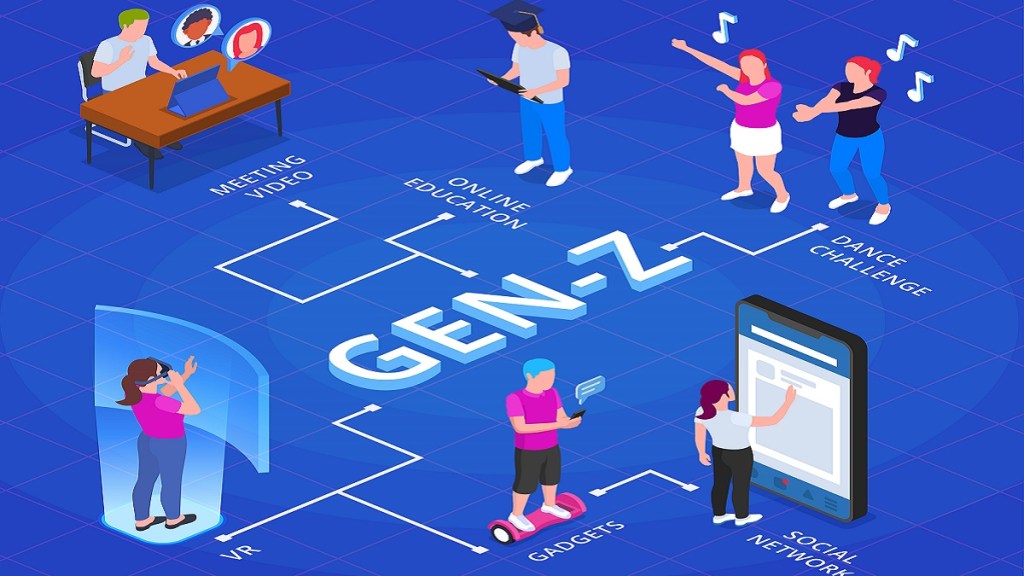– By Udbhav Jalan
As the world opens up and people go back to work, a new generation is entering our workforce, i.e., Gen Z (those born between 1995 and 2010). This generation has had the added advantage or disadvantage of being ‘Digital First’ (only time will tell). This has led to the creation of a hypercognitive generation who are on the quest for truth. Gen Z values individual expression and avoids labels. They also mobilize themselves for a variety of causes whilst believing profoundly in the efficacy of dialogue to solve conflicts and improve the world. Finally, they make decisions and relate to institutions highly analytically and pragmatically.
Some say this generation isn’t resilient and want everything to be ‘easy.’ On the other hand, many also say that this is one of the most intelligent generations of our time and the most open-minded and accepting. While it is true that Gen Z seeks out convenience over everything else, they are also more focused on experiences, rather than being confined to the idea of a single 9-5 job on repeat. Their spending habits follow the same philosophy and are something brands should be paying attention to. Such behaviors influence how Gen Zers view consumption and their relationships with brands. As a report from Mckinsey on the implications of Gen Z characteristics on companies explains, there are three factors to pay attention to:
Consumption as access rather than a possession: As consumers, this generation requires information and evaluation before making a purchase. The act of consumption is not just about possessions but about having access to the product or service. Every product now is a service and works to form connections with consumers. And with this form of consumption, certain unlimited access services (like OTT platforms and subscription boxes) are extremely valuable.
Consumption as an expression of individual identity: Gen Z is all about individuality and personality. What they consume is a form of self-expression rather than fitting in. Following this, Gen Z consumers look for more personalized products and would be willing to pay the premium.
Consumption as a matter of ethical concern: Because of all the value they place on brands, Gen Z consumers expect the brands they associate themselves with to have a stand or a point of view. While this doesn’t mean they want brands to make a statement on every topic, but rather speak on the specific causes that make sense for the brand. For Gen Z, a company’s actions should match the ideals they present to the world.
Also Read: After Covid losses, food & beverage segment sees brisk business
How this breaks down:
They are more likely to purchase from a brand with a relevant social media presence and one they can connect to. Gen Z tend to spend on what interests them and align with their values, so there is a higher tendency to gravitate towards unique brands with a narrative. They expect a level of accountability from the brands they associate themselves with and will therefore look for ideals like sustainability, diversity and inclusion, and overall ethical consumption. There is a considerable emphasis on authentic brands and the growing popularity of local or homegrown ones.
Eating out rather than Eating in: These days, people are busy. With the world opening up, there is just so much to see and do – you cannot blame Gen Z for not placing too much emphasis on eating at home. Gen Z explores its desire to experience new cultures through its cuisines, so trying out different and exciting food is often done. And one way of making this convenient is through apps like Swiggy and Zomato – which give them the variety of options they want without limiting them from having to have the same thing over and over again. Food fatigue? Pass.
Life is no longer a strict segregation of work and play. People are looking to go out during the work week and find experiences of lasting value and new connections. Culture and experience are at the forefront of living right now, so whether it is a mixology class, a recurring book club, even a potluck, or local food tours – Gen Z is always on the lookout for ways to make their weeks more interesting.
Luxury is now a lifestyle, and this generation wants to experience the best of the best. Whether it’s world-class amenities or the latest technological trends, Gen Z always looks for the newest and most unique experiences. This generation isn’t scared to try the unknown, from fitness trackers and CGM monitors to exclusive networking events and international gigs (think Magnetic Fields, Burning Man).
Community living and working is a new growing trend amongst this generation. After two years of being alone and unable to socialize, as this generation moves out, they are looking for spaces emphasizing community and networking. And what better way to mingle with people than a co-living space? Co-living provides all the benefits of living alone (like much-needed privacy and space) and living with a family – namely, a support system. As an excellent opportunity to network with and meet new people, it’s no wonder why co-living spaces are a growing trend with this generation.
Gen Z are early adopters and always on the move. If something doesn’t interest them, they will not waste their time with it. Attention spans are limited, and knowledge dissemination and availability are increasingly ubiquitous, so growth-led day-to-day experiences are placed high on their priorities.
(Udbhav Jalan is the Chief of Staff at Hyphen)

